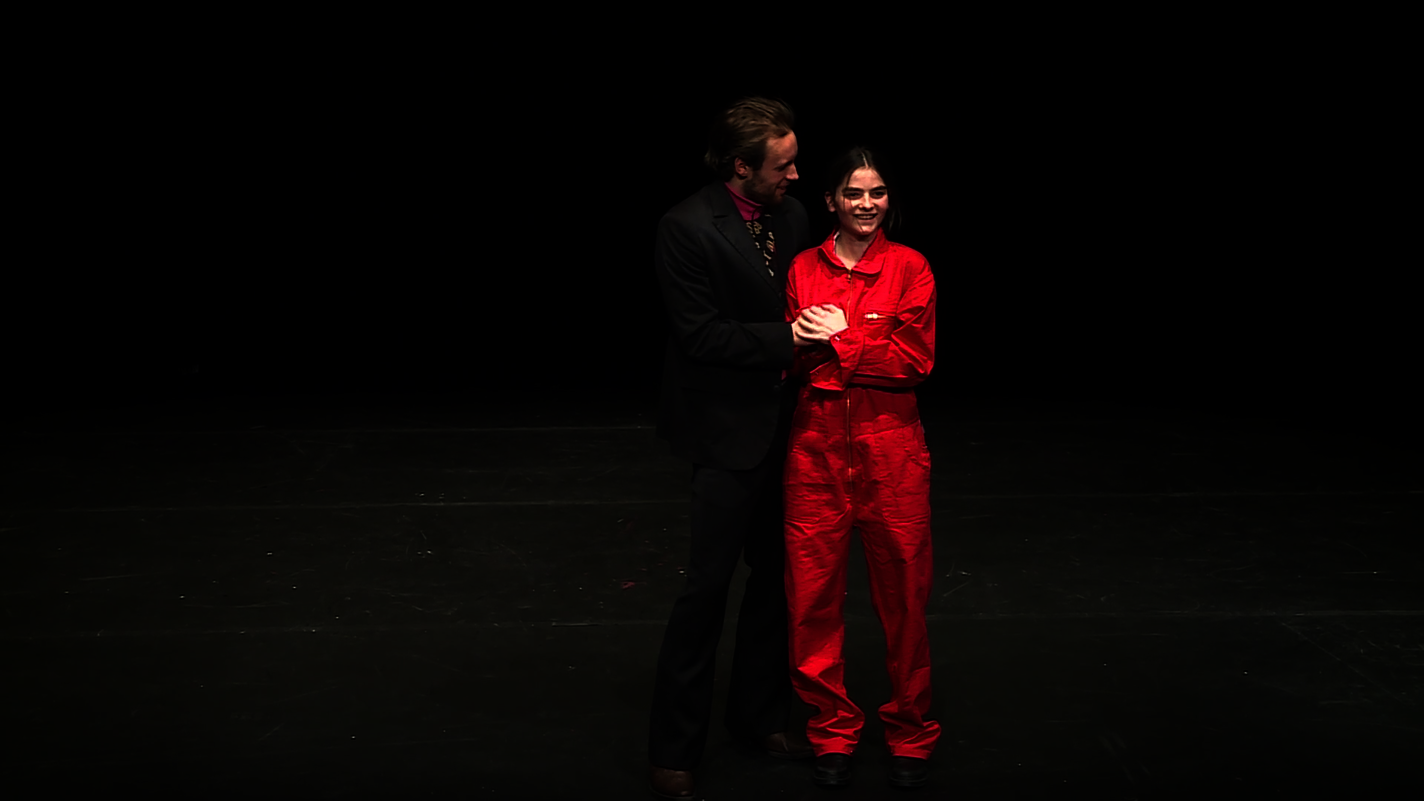Workshops
As complements to the theoretical classes of the core curriculum of the Directing master’s studies, a series of recurring, practical workshops are offered in cooperation with other departments of the Film University. These block-courses are all about honest exchange of experience, hands-on work and building a lasting network with fellow students. Since the resulting films or works are not made with the goal of external distribution, the workshops allow great room for free experimenting and learning without fear of failure. We list a few examples below:
16 mm Workshop (DOC)
Supervisors: Prof. Susanne Binninger, Prof. Susanne Schüle, Prof. Gesa Marten, Cosima Lange
In this interdisciplinary master's workshop involving the departments of Cinematography, Film and Television Production, Editing, and Directing, documentary miniatures are created in a free form — shot on 16 mm and edited digitally. The workshop provides space for process-oriented experimentation and artistic research. We explicitly encourage a playful and open approach and support boundary-pushing explorations. The documentary genre is to be explored to its very edges — and beyond.
Improv workshop (FICTION)
Interdisciplinary practical exercise with cinematography and acting students.
In the improv workshop, the teams each have a day to develop and shoot a scene or sequence. Starting from simple situations involving two or three actors, the goal is to create a premise, characters, backstory, and visual execution. The focus of the exercise is on improvisation, so everyone is encouraged to design a simple situation and to concentrate on the collaboration of all involved departments. The technical effort should be kept minimal considering the time and resources available. The work and filming take place in the rehearsal stage. The aim of the exercise is to develop believable and authentical characters.
Additionally, the improv workshop provides an opportunity to experiment with new team combinations in preparation for the graduation projects and potentially to further explore them during the Master Workshop in the summer semester.
Staging for Theater (FICTION)
Disciplines: Directing, Acting
Supervisors: Prof. Andreas Kleinert (Directing), Prof. Florian Hertweck (Acting)
After an introduction by the acting and directing instructors, the directing students regularly rehearse scenes from a 20th or 21st century play of their own choice with the acting students over the course of a month. Opportunities to work with costume and set design, lighting and music on stage are encouraged and taught. At the end there is a public theater premiere on the big stage and evaluations with the lecturers.
Image description: In collaboration with director João Pedro Prado, actors Emilie Neumeister, Henning Hermia Gerdes and Lennart Thomas stage the 1977 play What happened after Nora left her husband by Austrian playwright Elfriede Jelinek. Premiere on December 10, 2021.

Master-Workshop (FICTION)
Interdisciplinary practical workshop with the study programs: Scenography, cinematography, screenwriting, editing, production, acting, directing
This practical interdisciplinary workshop focuses on the portrayal of characters both on a narrative and directorial level as well as on a visual level. What constitutes an authentic and truthful character depiction? How are believability and uniqueness created, and how can psychological development be depicted in its complexity across various artistic levels?
Within the Master Workshop/fictional, four different stories will be developed and realized that explore the relationship between two or three characters and the psychological developments that occur within their environments. The workshop will be supplemented by relevant lectures and seminars, and individual sessions with instructors from all disciplines will be available to the teams.
The filming will take place at two original locations.
Editing in Documentary (NON FICTION)
Disciplines: Directing, Editing
Supervisors: Prof. Gesa Marten (Editing), Prof. Stephan Krumbiegel
In contrast to feature film editing, which is oriented to the script and works with material that has been shot according to plan, the structure of documentary films is only developed in the editing room due to the often unpredictable nature of the film material. Dramaturgical considerations therefore come first in the editing of such films: What is actually the plot of the film? How can I stay close to the plot through editing? What is the conflict in the story from which the tension stems? And how can I build up the conflict and increase the tension? How can I use the existing footage to tell what was planned? Or to what extent do I have to modify the original idea in order to still make a good film? The seminar will also provide an insight into the work processes and techniques of editing documentary films: From the planned preparation of large amounts of material for editing to the tools for finding a dramaturgical structure, methods from practice will be presented and tested.
Image description: Prof. Gesa Marten teaches a method for reshaping the dramaturgy of raw documentary footage in the editing room.

Workshop Interventions: Interfering, arranging and staging when shooting a documentary (NON FICTION)
Courses: Directing, Cinematography
Advisor: Prof. David Bernet (Directing), Prof. Susanne Schüle (Cinematography)
There are may controversies surrounding the core of documentary filmmaking - a form of art which gains its relevance from its relationship with reality. One of the biggest controversies is the question in which ways interventions, arrangements and staging approaches are legit. How far is a documentary filmmaker allowed to interfere? What does it mean to have a concept based on interfering? What is the difference in between fictional images and images that can be found in reality? These kind of questions are the pivot for this workshop.
